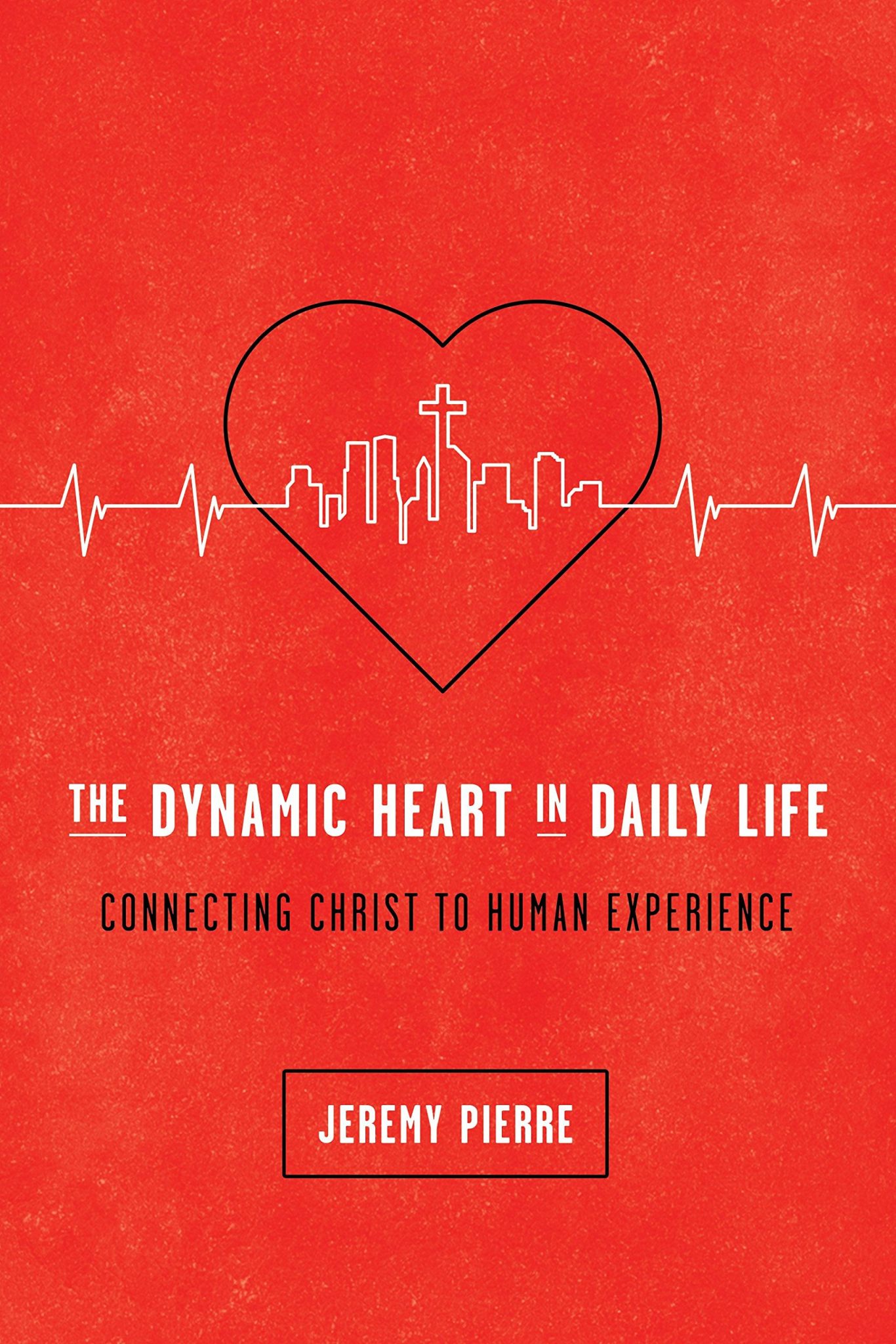Where do you start when someone shares a struggle with fear and anxiety? What do you listen for when a couple unloads their marital mess in your office? How do you make sense of a person’s shame given a story of abuse and neglect? Jeremy Pierre, associate professor of biblical counseling at The Southern Baptist Theological Seminary, offers a roadmap for navigating real life issues in his theology of human experience, The Dynamic Heart in Daily Life: Connecting Christ to Human Experience, which he lays out in three progressive sections.
In Section 1, Pierre describes “the beauty of human experience” through a three-dimensional understanding of how our hearts respond to life: cognitively, affectively, and volitionally. Yet Pierre doesn’t merely dissect the heart. He also shows how our hearts are shaped by God’s story of creation, fall, and redemption. In order to understand ourselves and others more fully, we need to know how God created us to experience life, how the fall brought disorder to God’s design, and how Jesus Christ’s finished and ongoing work of redemption makes a difference in our journey toward our heavenly home.
In Section 2, Pierre moves from explaining the dynamic responses of the heart to “the context of human experience.” Here we see how the heart engages in relationship with God, self, and others in the circumstances of life. By practically understanding what it means to be created in God’s image, we gain a greater awareness of how God designed us to relate to him and others.
Section 3 offers a model for how we can counsel others “from a theology of human experience”: (1) read—hearing people’s hearts; (2) reflect—helping people understand their responses; (3) relate—looking to Jesus; and (4) renew—calling people to new responses by faith. Pierre offers a matrix for understanding and connecting Christ to human experience through the three-dimensional responses of the heart in relationship with God, self, and others in the details of life.
What sets The Dynamic Heart apart in the field of biblical counseling is the way it clarifies human nature and experience, while showing us what it looks like to respond in faith.
Clarifying Human Nature
Despite the countless theories that fill textbooks and self-help volumes, confusion abounds both inside and outside of the church regarding our human nature and how we experience the world.
As such, we have a relentless desire to figure things out, seeking to know why we do what we do and why we feel the way we feel. Pierre systematically offers biblical and theological truths to clarify these and other questions that, if left unanswered or inadequately unaddressed, tend to undermine our life with God and others.
Pierre addresses two significant realities about human nature that lie at the center of our confusion. First, the reality that God created us in his image translates into a profound, yet practical, truth: “the functions of the human heart are reflective of divine internal functions” (111). This “theomorphic” reality serves as an anchor and reference point for understanding ourselves and the ultimate purpose for our human experience. He goes on to explain that imitating God’s character happens not only in obedience, but also in thinking like him, valuing what he values, and sharing his priority of commitments (111).
Clarifying Experience and Identity
The second crucial aspect of human nature is addressed in Chapter 7, titled “Self and Identity.” Pierre offers invaluable insights on knowing the difference between our constructed identities—shaped by various external factors such as culture, experiences, ethnicity, accomplishments and responsibilities—and our God-given identity rooted in creation and Jesus Christ. As Pierre suggests, “God designed human beings to operate out of an established self-conception” (126). Our given identity—declared and described by God—should inform how we live life with God and others, even in a fallen world. However, given our brokenness and the “already but not yet” reality of redemption, our constructed identities can exert more influence on the dynamic responses of our hearts and, in turn, shape how we relate to others.

The Dynamic Heart in Daily Life: Connecting Christ to Human Experience
Jeremy Pierre
The Dynamic Heart in Daily Life: Connecting Christ to Human Experience
Jeremy Pierre
Pierre addresses another aspect of the self—the conscience. With regard to how our selfhood has been affected by the fall, he writes:
Human beings are born estranged from themselves—each have an internal mechanism of self-critique that comes from being made to image God but failing to live consistently with that image. That mechanism of self-critique is called the conscience: people’s internal witness against their own hearts, making them aware that things are not functioning properly. The result is shame and self-condemnation. (136)
The enemy wants to use the resultant shame and self-condemnation that emerges from our conscience to entangle us and drown us in despair. But God intends for our conscience to redirect our gaze to Jesus, who took our shame and was condemned, so we can live without shame and condemnation as we live in Christ.
Pierre ends this chapter with a helpful way to measure our various identities using three scales: (1) source—what voices have shaped this particular identity, and is it reliable?; (2) center—is a particular layer of identity placed rightly or wrongly in reference to our God-given identity?; and (3) purpose—is the end goal of a particular identity God-glorifying or self-glorifying? This practical tool has immediate application and benefit as we seek to encourage one another.
Pierre makes clear that self-awareness or right identity isn’t the goal of the Christian life but how such awareness and identity should lead to a right response to God by faith.
Responding by Faith
Throughout this theology of human experience, Pierre examines the various dimensions of faith in the same way a jeweler carefully examines every facet of a diamond. As a result, Pierre wisely addresses an inevitable question we all wrestle with in the Christian life: How can I respond to God in the midst of my struggles? Pierre answers this important question: “Faith involves expressing the raw contents of the heart to God” while “submitting . . . to what God said about himself in his word” (116, 117). He confesses honestly,
I may not know exactly what I ought to do, how I ought to feel, or what decision I ought to make in the situation swirling around me, but I do know that God’s person is always worth my supreme attention, and his intention for my life is trustworthy. (120)
This particular look at faith is one of the countless gems waiting to be pondered. As you keep track of the various ways faith is examined, explained, and expressed in this book, you’ll begin to experience a more dynamic and life-giving faith in Jesus Christ.
Whether you’re a pastor seeking to shepherd God’s people wisely or a disciple of Christ seeking to grow in caring for others, The Dynamic Heart in Daily Life is an invaluable resource. Pierre’s work serves as a clarifying voice in the confusing world of counseling.

































